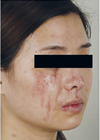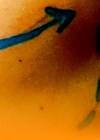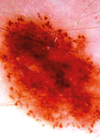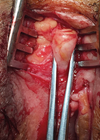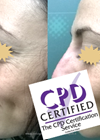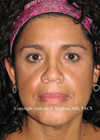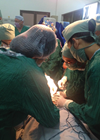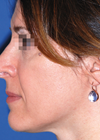Features archive for 2018
CQC regulators and private hospitals need more common sense
There is a fundamental flaw in the way regulatory bodies are allowed to pressure and scare perfectly functioning private hospitals. Invariably the regulators themselves are of ordinary stock and have to justify their salaries by increasing administrative workloads on others....
Multidisciplinary approach to breast cancer conservation – therapeutic mammoplasty
Edinburgh-based plastic surgeon Ewa Majdak-Paredes provides us with a comprehensive review of therapeutic mammoplasty, a multidisciplinary approach to breast-conserving surgery with an emphasis on oncological safety and good aesthetic outcomes. Breast cancer Each year over 55,000 women in the UK...
A picture is worth a thousand words… communicating with your patients more effectively
Communicating information effectively with patients is essential yet often challenging. Plastic Surgeon Gavin Miller takes us through his approach to using online resources to make the process as effective as possible. Getting ideas across to other people isn’t always easy,...
What’s new in treating hypertrophic scars and keloids?
World renowned dermatologist, Michael H Gold, explains new treatments available in the challenging field of hypertrophic scar and keloid management. The treatment of hypertrophic scars and keloids remains one of the most challenging conditions that dermatologists face on a regular...
The importance of skin preparation
With both aesthetic procedures and antibiotic resistance on the rise, good skin disinfection to reduce the risk of infection is more vital than ever. Anna Baker takes us through the evidence behind commonly used skin preparation formulations for aesthetic injectable...
My experience of setting up a nurse-led independent aesthetics and dermatology clinic
An experienced nurse shares her tips and advice for launching an independent private aesthetic clinic. LoveSkin Clinic opened its doors in November 2016. Like so many other nurses embarking on such a venture I had no experience running a business...
Dermoscopy: an update and personal view
With skin cancer now at epidemic levels, early diagnosis is essential. Specialist Stephen Hayes advocates the use of dermoscopy as a triage tool and explains how to interpret the data. Melanoma skin cancer is now the UK’s fifth most common...
Clitoral reconstructive surgery after female genital cutting
Female genital mutilation / cutting (FGM/C), aka female circumcision, is defined by the World Health Organization (WHO) as “All procedures that involve partial or total removal of the external female genitalia for non-medical reasons” [1]. Practised in Africa and other...
‘Rhinofiller’: non-surgical correction of the nose
Dr Agolli from Italy advocates the use of filler to quickly and easily achieve a non-surgical rhinoplasty without downtime for the patient. Cultural basis It is believed that Dante Alighieri was not a handsome man, probably because of his appearance,...
Platelet-based aesthetic therapies – to science from fiction
The author provides an overview of the theory behind platelet rich plasma and summarises the published evidence for its use in aesthetic treatments. Platelet-based treatments, commonly referred to collectively as platelet rich plasma (PRP), have been proposed and advocated for...
British Foundation for International Surgery and Training
Two of the UK’s most innovative Plastic Surgeons, Barbara Jemec and Wee Lam, give a fascinating account of the work of BFIRST overseas and, perhaps most importantly, explain how you can get involved. The British Foundation for International Surgery and...
The importance of continuing professional development in rhinoplasty
The PMFA Journal team invited two world-renowned rhinoplasty surgeons to reflect on the importance of life-long learning in their chosen specialty. The vital role of continuous surgical training in rhinoplasty By Pietro Palma Rhinoplasty can be a most rewarding operation...





